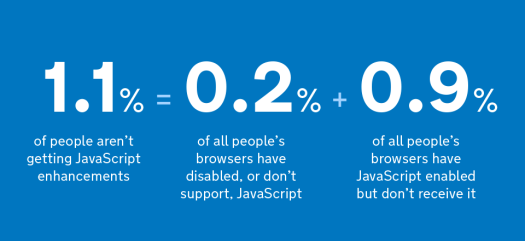Wet streets cause rain and criminal responsibility
Also, javascript can make you cry.
The Gell-Mann Amnesia Effect http://t.co/MdcQN1Sq7V
— Gary Bernhardt (@garybernhardt) June 27, 2015
The Gell-Mann Amnesia Effect:
Every time the media covers something we are familiar with, they get it wrong, sometimes to the point of inverting cause and effect (i.e. “wet streets cause rain”).
Despite this, every time we read media coverage of matters we are not familiar with, we conveniently forget how utterly incompetent they were on the subject we knew.
Long story short: the reason why cat pictures and cute memes are taking over media is that they are the only subjects we can trust them not to fuck up.
Warning: if you ever run into me IRL, don’t ask me what I think about news media science coverage (or trade publishing’s handling of science for that matter). It’s a subject that makes me angry.
(If you worked at a news company that published anti-vaccination pieces back during the MMR scare then you have blood on your hands.)
Just me, or are Twitter's "requirements" for their in-app browser creepy as hell? https://t.co/FsE5XgJ2QL
— Marco Arment (@marcoarment) June 27, 2015
No, it’s not just you.
Web wins for reach.
Native wins for engagement.
Each is great for something different. pic.twitter.com/mr0bHDwYiK— Luke Wroblewski (@lukew) July 3, 2014
For now. It’ll only stay that way if we work at it.
Measurable goals do not improve systems; accountability
does not improve systems. Improving systems improves systems.— Jānis Olekšs (@Jan_Olex) May 28, 2015
It’s not about giving up your frameworks to cater for fictional example users with scripting disabled. It is true that not everyone has JS and that sometimes that’s you, so let’s work out how to do this without regressing to 1998.
Availability by Stuart Langridge (490 words).
And…
It’s not 1% of people who always can’t see your site and 99% of people who always can. It’s 1% of visits. Almost all the people who don’t get your site correctly actually should have been able to. They don’t have JavaScript turned off. They’re not browsing on a WAP phone over a 2g connection from a shanty town. They’re you, in a cellar bar or a hotel room or waiting for the phone network to wake back up.
Why availability matters by Stuart Langridge (317 words).
So, 1 user in every 93 has JavaScript disabled?
No. Surprisingly, the proportion of people that have explicitly disabled JavaScript or use a browser that doesn't support JavaScript, only makes up a small slice of people that don't run JavaScript.

How many people are missing out on JavaScript enhancement? by Peter Herlihy.
And yet we—as an industry—don’t seem to have any problem telling someone they need to change their browser to accommodate us. That’s just wrong. Our work is meaningless without users. We should be bending over backwards to attract and retain them. This is customer service 101.
Where Do We Go From Here? by Aaron Gustafson (4098 words).
“They have criminal responsibility,” he says of the so-called troika of financial institutions that bailed out the Greek economy in 2010, namely the International Monetary Fund, the European Commission and the European Central Bank. “It’s a kind of criminal responsibility for causing a major recession,” Stiglitz tells TIME in a phone interview.
Joseph Stiglitz to Greece’s Creditors: Abandon Austerity Or Face Global Fallout by Simon Shuster / Athens (854 words).
From an environmental point of view, it certainly wouldn’t be good news. Unfortunately for Bitcoin advocates, the currency uses too much electricity right now—way too much: According to my calculation, a single Bitcoin transaction uses roughly enough electricity to power 1.57 American households for a day.
Bitcoin Is Unsustainable by Christopher Malmo (1939 words).
I’m reminded of the fact that the transactional storage costs of Bitcoin are surprisingly high (an inevitable side effect of its design). I’ve heard esimates of around $6.5k per megabyte of data.
The storage costs for transactional financial data, the old-fashioned way using relational databases, is several orders of magnitude cheaper, even in the worst case scenario.
That’s without getting into the issue that Bitcoin shifts the costs of fraud prevention and security onto the user.
It's easier to write articles about how to avoid the innovator's dilemma when a cursory glance shows you don't really understand it.
— Ben Thompson (@benthompson) June 30, 2015
Scribd "purge" shows "all you can eat" ebook models biggest flaw: it can't actually support the voracious readers they claim to serve.
— Guy L. Gonzalez (@glecharles) July 1, 2015
Strategy is choosing when to put your money where you mouth is, and when to just shut your mouth.
— Christina Wodtke (@cwodtke) July 2, 2015
Ruby makes the easy elegant and the hard possible. Golang makes the easy interminable and the hard elegant. Javascript mostly makes me cry.
— Patrick McKenzie (@patio11) July 3, 2015
Latest string of App Store sustainability articles basically amount to "Apple's not the problem, you and your valueless apps are."
— Eli Schiff (@eli_schiff) July 3, 2015
Those articles are almost certainly true. If you want to make a living in software, make line-of-business software or some sort of B2B service. Expecting to make a living out of consumer software is about as realistic as expecting to make a living from writing literary fiction.
Basically, consumers in aggregate are demanding, stingy, and stupid. They are generally horrible, horrible customers. What? Did you think companies like Google ended up with sleazy business models by accident?